Mnathan nan Iasgairean / Fishermen’s Wives
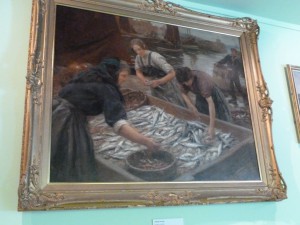 Nuair a bha mi ag ullachadh buth-obrach mu bhailtean iasgaich san Ear-Tuath bliadhna no dhà air ais (sgrìobh mi ma dheidhinn anns na Seaboard News aig an àm sin), bha mi a’ rannsachadh òrain freagarrach, agus mhothaich mi gu bheil iomadh òran ann a tha a’ dèiligeadh ri beatha nam boireannach, m.e. mnathan nan iasgairean is na caileagan-sgadain. Na làithean seo bha mi a’ bruidhinn mu dheidhinn sin ri mo mhàthair cuideachd, as dèidh dhuinn a bhith anns an East Neuk ann am Fìobha agus gu h-àraidh ann an taigh-tasgaidh iasgaich ann an Ànsruthair, leis na taisbeanaidhean agus na dealbhan a tha a’ sealltainn na boireannach sin aig an obair chruaidh a bh’ aca.
Nuair a bha mi ag ullachadh buth-obrach mu bhailtean iasgaich san Ear-Tuath bliadhna no dhà air ais (sgrìobh mi ma dheidhinn anns na Seaboard News aig an àm sin), bha mi a’ rannsachadh òrain freagarrach, agus mhothaich mi gu bheil iomadh òran ann a tha a’ dèiligeadh ri beatha nam boireannach, m.e. mnathan nan iasgairean is na caileagan-sgadain. Na làithean seo bha mi a’ bruidhinn mu dheidhinn sin ri mo mhàthair cuideachd, as dèidh dhuinn a bhith anns an East Neuk ann am Fìobha agus gu h-àraidh ann an taigh-tasgaidh iasgaich ann an Ànsruthair, leis na taisbeanaidhean agus na dealbhan a tha a’ sealltainn na boireannach sin aig an obair chruaidh a bh’ aca.
Bha mi ag iarraidh feadhainn de na h-òrain as fheàrr leam a phàirteachadh còmhla ribh, oir ‘s e pàirt den dualchas againn uile a th’ annta, leis an eachdraidh a th’ againn ann am Machair Rois, agus na ceanglaichean ris na bailtean iasgaich eile timcheall air oirthir na h-Alba agus fiu’s ann an Sasainn an Ear, gu ruige Yarmouth. Gu fòrtanach, tha daoine anns a’ choimhearsnachd againn fhèin aig a bheil cuimhne fhathast air an dòigh-bheatha sin, no a chuala ma dheidhinn tric gu leòr bho na pàrantan aca . Bidh iadsan ag aithneachadh iomadh sealladh agus suidheachadh a tha air a dhealbhadh anns na h-òrain seo, agus ‘s urrainn dhaibh innse dhuinn barrachd ma dheidhinn.
Tha òrain thradiseanta ann agus òrain air an sgrìobhadh a chionn ghoirid anns an t-seann nòs, mar an fheadhainn le Ewan MacColl. ‘S e fìor “classic” a th’ anns an fhear seo, air a sgrìobhadh airson prògram rèidio BBC ‘Singing the Fishing’ ann an 1960, agus e a’ dèiligeadh ris na caileagan-sgadain, a dh’fhalbh bho Linne Mhoreibh gu Yarmouth – Come a’ ye fisher lassies:
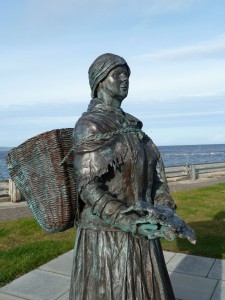 ….Rise up in the morning wi’ your bundles in your hand,
….Rise up in the morning wi’ your bundles in your hand,
Be at the station early or you’ll surely hae to stand,
Tak’ plenty to eat and a kettle for your tea,
Or you’ll mebbe die of hunger on the way to Yarmouth quay…..
… It’s early in the morning and it’s late into the nicht,
Your hands a’ cut and chappit and they look an unco’ sicht,
And you greet like a wean when you put them in the bree,
And you wish you were a thoosand mile awa’ frae Yarmouth quay
There’s coopers there and curers there and buyers, canny chiels,
And lassies at the pickling and others at the creels,
And you’ll wish the fish had been a’ left in the sea
By the time you finish guttin’ herrin’ on the Yarmouth quay…..
Bha mo sheanmhair na caileag-sgadain na h-òige. Bhiodh i a’ cutadh nan sgadan aig na “farlans” fad an latha, le pìosan annairt mu na corragan, no a’ pacadh nam baraillean, agus a rèir coltais bha mo sheanmhair glè mhath air na sgadain a phacadh, obair a bha gu math cruaidh.
Bha na caileagan-iasgaich gu trice bòidheach agus spaideil agus tha òrain romànsach ann cuideachd, mar The Bonnie Fisher Lassie:
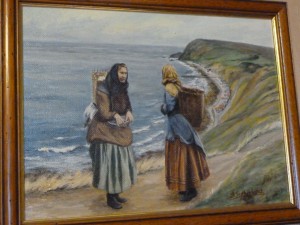 ….Her petticoats she wore so short, they came below her knee.
….Her petticoats she wore so short, they came below her knee.
Her handsome leg and ankle, they so delighted me.
Her rosy cheeks her yellow hair, for an empress she might pass,
And wi’ her creel she daily toiled, the bonnie fisher lass.
I stepped up beside her and to her I did say
‘Why are you out so early? Why are you going this way?’
She said ‘I’m going to look for bait, now allow me for to pass.
For our lines we must get ready’ said the bonnie fisher lass…..
Cha b’ e sin an fhreagairt a bu romànsaiche! Ach practaigeach agus fìor gu leòr.
Bha spòrs agus beagan saorsa aig na caileagain-sgadain cuideachd nuair a bha iad air falbh leis na caraidean aca, ged a bha an obair fhèin cho doirbh is sgìtheil, ach nuair a bha iad pòsta, dh’fhàs a h-uile rud fiù ‘s nas duilge. Mar a sheinn Ewan MacColl anns The Fisherman’s Wife:
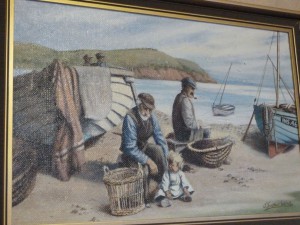 …Ye ken whit wye he has tae work
…Ye ken whit wye he has tae work
Ye ken the hours he has tae keep
And yet it maks ye angry when
Ye see him just come hame tae sleep
Through the months and through the years
While ye’re bringing up the bairns
Your man’s awa’ tae here and there
Followin’ the shoals of herrin’
And when he’s back there’s nets tae mend
Ye’ve maybe got a score or twa
And when they’re done he’ll rise and say
Wife, it’s time I was awa’….
Feumaidh gun do chuir e dragh mòr ort a bhith a’ feitheamh ris a’ bhàta, an dòchas gun tilleadh an duine agad gu sàbhailte. Uaireannan cha do thill, mar a chluinneas sinn anns an òran The Lifeboat:
… There’s sweethearts and wives standing round,
The boats crew are all from this town,
Such an earnest-like throng, such a silence among,
And we pray as the mercy-boat speeds on her way,
‘O dear Lord above, hear our cry.’
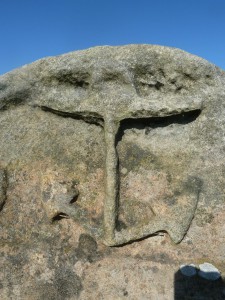 At length on that storm-wracked shore
At length on that storm-wracked shore
Our hands help the lifeboat to moor,
And we learn of the fate of the skipper and mate,
And the fishermen pray as they stand ‘neath the spray,
‘O Lord, help their wives to endure.
Lord, father their bairns in this hour.’…
Ach uaireannan eile bhiodh iad fòrtanach, mar a chluinneas sinn anns an òran Guiding Light and the Evening Star, air a dhèanamh le Scott Murray (mòran taing!) a rèir sgeulachd a fhuair e bho bhoireannach ann an Cellardyke:
…And ye thocht on the man nearly lost
Wha was ta’en frae his boat by a wave
He was put back on deck by anither
An we thanked the Lord he was saved
Aye we thanked the Lord he was saved….
Mu dheireadh tha mi a’ dol a thoirt òran tradiseanta dhuibh a tha a’ glacadh suidheachadh teaghlachan iasgaich air leth math – The Peterheid Fisherman’s Wife. Tha dealbhan ann a chuir cuimhne orm air na a dh’innis mo mhàthair dhomh mun bheatha aca nuair a bha i òg, is an t-athair aice a’ dèanamh na tiopagan, na ‘cheepicks‘ no tippings, ri taobh an teine, agus na boireannaich a’ cruinneachadh a’ bhiathaidh air a’ chladach bho mhoch gu dubh. Seo an òran gu lèir dhuibh:
Fa wid be a fisherman’s wife
Tae work wi’ a tub an a scrubber an’ a knife
A deid oot fire an’ a raivel’d bed
An’ awa tae the mussels in the mornin.
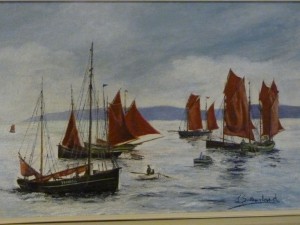 Chorus: Here we come scoorin in,
Chorus: Here we come scoorin in,
Three reefs tae the foresail in.
There’s nae a dry stick tae pit on wer back,
But still we’re aa teetotllers.
Noo, fa’ll gie’s a hand tae rin a ripper lead
Tae try for a coddie in the bay o’ Peterheid?
They’re maybe at the Lummies or the clock on Sautis’eid
Fen we gaun tae the sma lines in the mornin.
Ma puir aul father’s in the middle o’ the flair
Beatin heuks ontae tippets an they’re hingin on his chair.
They’re made wi horses’ hair, man, for that’s the best o’ gear
Tae be gyan tae the fishin in the mornin.
Syne it’s doon the Geddle Braes in the middle o’ the nicht
Wi an aul seerup tin an a can’le for a licht,
Tae gaither up the pullars, ev’ry een o’ them in sicht
So we’ll get the linie baited for the mornin.
It’s easy to the cobbler, sittin in his neuk,
His big copper kettle hingin on a crook.
But we’re in the boo and we cannae get a heuk
It’s sair hard work in the mornin.
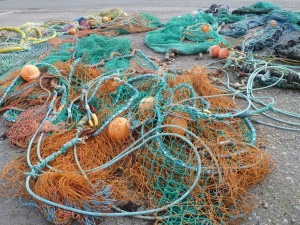 It’s nae the kin o’ life that a gentle quine can thole
It’s nae the kin o’ life that a gentle quine can thole
Wi her fingers reid raw wi the scrubbin oot a yole
An a littlen on her hip, she’s awa tae cairry coal,
She’ll be caaed sair deen in the mornin.
Still an aa she widnae change for the gran’est o’ yer gear
For she never kens the minute when her hairt’ll loup wi fear.
For he’s awa tae the sea an he’s aa that she has dear
She qued be a widow wi his bairn in the mornin.
*********************************************************
(For lyrics of songs named, see Gaelic version above)
When I was preparing a workshop on the fishing villages of the North East a couple of years ago (reported in the Seaboard News at the time), I was researching suitable songs and I noticed that there were a lot dealing with the hard life of the womenfolk, the wives or the herring-girls. Recently I was also talking to my mother about this after our visit to the East Neuk and especially the Anstruther fishing museum, with its displays and paintings showing the women at their backbreaking work.
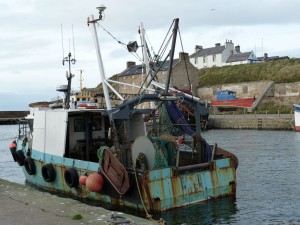 I wanted to share some of my favourites among these songs with you, as they’re part of our own heritage, with our Easter Ross fishing history and links with the other coastal towns, from the Highlands to Yarmouth. Fortunately for us, there are still people in our community who remember that way of life or who heard about it from their own parents. They’ll recognise many of the scenes and situations depicted here, and can certainly tell us even more.
I wanted to share some of my favourites among these songs with you, as they’re part of our own heritage, with our Easter Ross fishing history and links with the other coastal towns, from the Highlands to Yarmouth. Fortunately for us, there are still people in our community who remember that way of life or who heard about it from their own parents. They’ll recognise many of the scenes and situations depicted here, and can certainly tell us even more.
There are traditional songs and others written more recently but in the traditional style, such as those by Ewan MacColl. This one of his ‘classics’, composed for the BBC Radio programme ‘Singing the Fishing’ in 1960. It deals with the herring-girls who travelled from the Moray Firth to Yarmouth – Come a’ ye fisher lassies.
…And you’ll wish the fish had been a’ left in the sea..
My grandmother was a herring-girl in her youth. They would be gutting the herring at the ‘farlans’ all day, with strips of linen round their fingers to protect them, or packing the herring in barrels, and apparently my grandmother was very skilled at packing, an extremely demanding job.
The fishing girls were often very pretty and smartly turned out, so there are romantic songs too, like The Bonnie Fisher Lassie. But her answer to the gentleman is more practical than romantic –
She said ‘I’m going to look for bait, now allow me for to pass..’
The girls also had fun and an element of freedom when following the herring boats with their friends, hard though the work was, but when they got married, things got even harder, as Ewan MacColl sings in The Fisherman’s Wife.
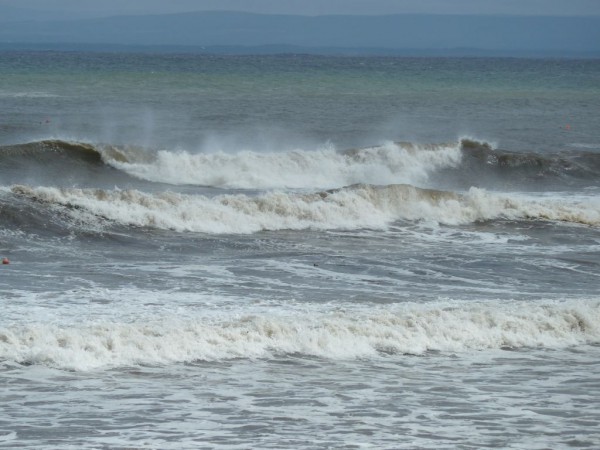 ..And when he’s back there’s nets to mend….
..And when he’s back there’s nets to mend….
It must have been very worrying, waiting for the boat, hoping that your man would return safely. Sometimes he didn’t, as we hear in the song The Lifeboat.
…and we learn of the fate of the skipper and mate…
But sometimes they were lucky, as in the song Guiding Light and the Evening Star, written by Scott Murray (thanks to him!) from a story told him by a lady in Cellardyke.
….Wha was taen frae his boat by a wave
He was put back on deck by anither…
Finally I have one more song for you that for me captures the situation of the fishing familes particularly well – The Peterheid Fisherman’s Wife. There are scenes that perfectly recall what my mother told me about their home life when she was young , her father spinning the horsehair ‘cheepicks’ or tippings by the fire, and the women gathering bait at all hours.
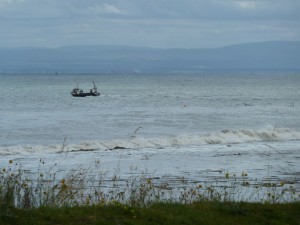 Fa wid be a fisherman’s wife
Fa wid be a fisherman’s wife
Tae work wi’ a tub an a scrubber an’ a knife
A deid oot fire an’ a raivel’d bed
An’ awa tae the mussels in the mornin…..
******************************************************************
Thanks to Anstruther museum for permission to use the herring girls painting, and to my mother for the other paintings.
Links to sources, lyrics and audio-links
Ewan MacColl lyrics: Come all ye fisher lassies (Song of the Fish-Gutters): http://www.traditionalmusic.co.uk/song-midis/Song_of_the_Fish-Gutters.htm
The Fisherman’s Wife (A the week…): http://www.traditionalmusic.co.uk/song-midis/Week_Your_Mans_Awa_or_Fishermans_Wife.htm
Scott Murray: Guiding Light and the Evening Star on the Sangsters CD Sharp and Sweet: http://www.footstompin.com/products/cds/sharp_and_sweet (the Cellardyke song from last month is also on that)
Traditional: The Bonnie Fisher Lassie: http://www.mervent.ru/lyrics/293-bonniefisherlass.html
The Lifeboat: http://mudcat.org/thread.cfm?threadid=138271
The Peterheid Fisherman’s Wife (Fa wid be..) : http://www.ltscotland.org.uk/scotlandssongs/secondary/genericcontent_tcm4572877.asp
Useful CDs: Isla St Clair: Tatties and Herrin – the Sea http://www.greentrax.com/music/artists/reviews/Isla-St-Clair-Tatties-And-Herrin-The-Sea-CD/
Ewan MacColl: Singing the Fishing http://www.amazon.co.uk/Singing-Fishing-MacColl-Charles-Parker/dp/B00000JG3V/ref=pd_rhf_p_t_3
Audio/video:
The late Ray Fisher and Cilla Fisher singing Come all ye fisher lassies: http://youtu.be/K0Aeety5IGg
Steeleye Span: The Fisherman’s Wife ( A’ the Week yer man’s awa’): http://www.youtube.com/watch?v=NRifQnoNL98
The Lochies: Shoals of Herring (in Gaelic, with archive pictures): http://youtu.be/EspRkEcfNHw
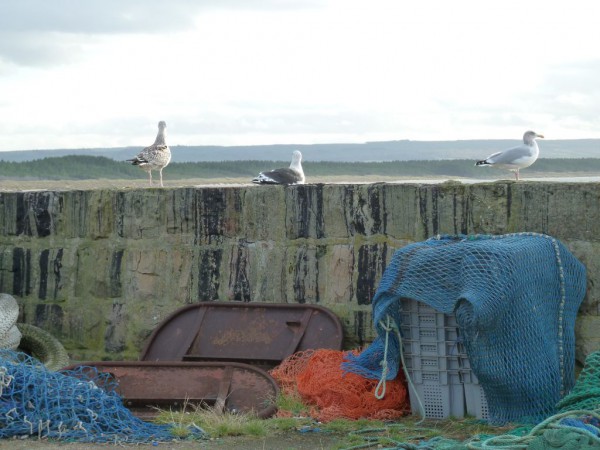


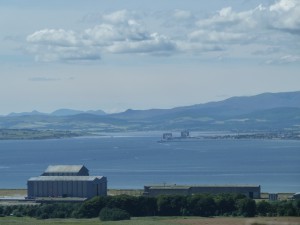
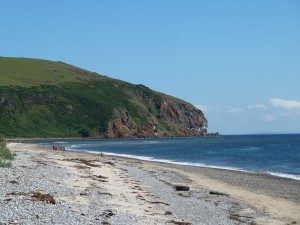


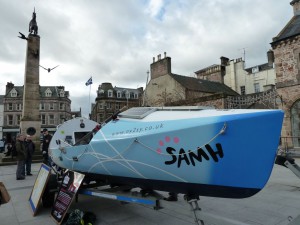
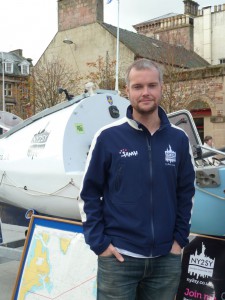

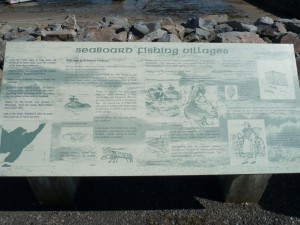













 Bidh an logo seo an-comhnaidh a’ ciallachadh rudeigin math!
Bidh an logo seo an-comhnaidh a’ ciallachadh rudeigin math! Anns an Earrach nochd Blas na Gàidhlig, leabhar mu fhuaimneachadh na Gàidhlig ach le mòran , mòran fiosrachaidh eile ann, agus air a sgrìobhadh ann an stoidhle a tha gu math fosgailte, eirmseach, uaireannan èibhinn. Tha faidhlichean-fuaim (nan ceudan!) air làrach-lìn sonraichte cuideachd, gus an cluinnear gach eisimpleir.
Anns an Earrach nochd Blas na Gàidhlig, leabhar mu fhuaimneachadh na Gàidhlig ach le mòran , mòran fiosrachaidh eile ann, agus air a sgrìobhadh ann an stoidhle a tha gu math fosgailte, eirmseach, uaireannan èibhinn. Tha faidhlichean-fuaim (nan ceudan!) air làrach-lìn sonraichte cuideachd, gus an cluinnear gach eisimpleir.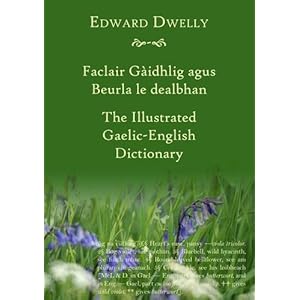 Agus a-nis bidh tionndadh ùr “pàipeir” Dwelly’s Illustrated Gaelic-English Dictionary ann a dh’aithghearr, air a dheasachadh le Mìcheal còir cuideachd, rud air an robh feum againn fad deicheadan. ‘S e tionndadh didseatach a th’ ann, mòran nas fhasa ri leughadh na na droch leth-bric le clò beag salach a bha ann gu ruige seo.
Agus a-nis bidh tionndadh ùr “pàipeir” Dwelly’s Illustrated Gaelic-English Dictionary ann a dh’aithghearr, air a dheasachadh le Mìcheal còir cuideachd, rud air an robh feum againn fad deicheadan. ‘S e tionndadh didseatach a th’ ann, mòran nas fhasa ri leughadh na na droch leth-bric le clò beag salach a bha ann gu ruige seo.
